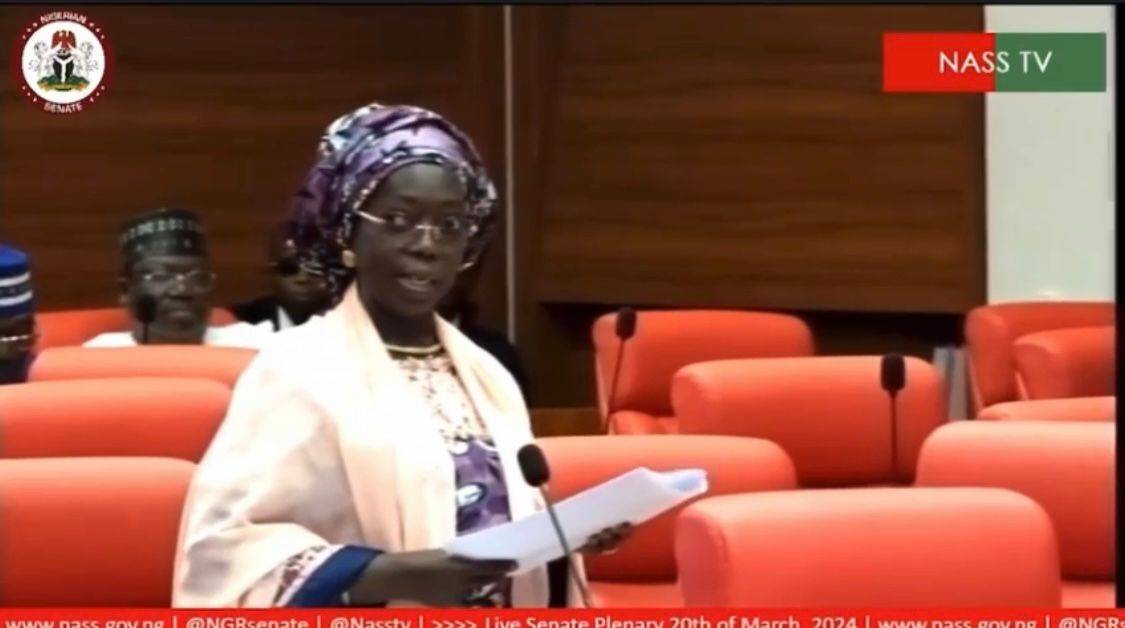The Senator representing Lagos West, Dr. Idiat Oluranti Adebule has called for fresh thinking and a change in approach toward effectively tackling the increase in the number and the menace of out-of-school children in Nigeria.
In a motion she moved on the floor of the red chamber on Wednesday, Adebule expressed grave concern about the growing number of Nigerian children who lack free access to quality education in the country quoting the United Nations Educational, Scientific and Cultural Organization (UNESCO) that put the figure at approximately 20 million.
Data from The Cable Index published recently revealed that Kebbi, Sokoto, and Yobe are the three states wrestling with the highest percentages of out-of-school children with alarming figures, where 67.6%, 66.4%, and 62.9% of children aged 6–15 are out of school, respectively.
In her motion titled “Compelling Need to Tackle the Challenge of Out-of-School Children in Nigeria,” Adebule harped on the all-important need for a paradigm shift in tackling the menace.
The former Lagos state deputy governor noted that efforts of past successive administrations have had little impact in taming the issue in the bud hence the need for new thinking and a more aggressive strategy.
She identified the social impact of the worrisome number of out-of-school children to include having a pool for easy recruitment into criminal gangs such as banditry, kidnapping, armed robbery, murder, and other forms of violent criminal organisations.
She urged the senate to mandate its committee on education both the basic and secondary to engage in Sensitisation and advocacy on the importance of education to the growth and development of the nation and the benefits of having a majority educated population.
The Lawmaker who doubles as the chairman House Committee on Social Welfare and Poverty Alleviation called for synergised efforts between related parastatals and agencies such as the Universal Basic Education, stakeholders including nongovernmental organizations to:
“a. severally and jointly bring up new strategies to effectively deal with the Out-of-School Children problem as well as rekindle the national consciousness through sensitization and advocacy on the importance of education to the growth and development of our country and the benefits of having a majority educated population;
“b. set a time limit of two years for the diligent implementation of the UBE Act as stipulated in section 2 (2).”
Also in the motion, the lawmaker, “urged governments at all levels to implement targeted intervention programs that will address all the factors militating against free access to quality and basic education, particularly multidimensional poverty and insecurity;
“Equally urge the Judiciary in the 36 states of the Federation to take steps towards setting up mobile courts for the enforcement of the UBE Act.”














